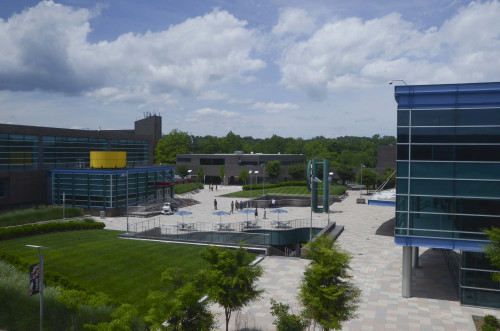I must have been absolutely crazy.
What kind of rabbi goes out of town on the Saturday evening and Sunday of the weekend between Rosh Ha Shanah and Yom Kippur?
I am that kind of rabbi, and I write these words in the aftermath of that hectic season, but with insights that I believe will illuminate the reason why I even became a rabbi.
My main objective in my recent trip to New York was to go to the cemetery out on Long Island, and to visit my mother’s grave. This is the mitzvah of kever avot, visiting the graves of your parents, which Jews traditionally do during the month of Elul, preceding Rosh Ha Shanah
My brother and I went out to the cemetery; visited my mother’s grave, and my maternal grandmother’s family plot; and drove past our childhood house, and our grandmother’s house in Jamaica, Queens, and got some decent deli. I spent time with my children and grandchildren as well.
So, between the encounters with the dead and with the living, my visit that day entailed “conversations” with five generations of my family.
But, part of my travel agenda was to attend my college reunion of SUNY Purchase. It was held in a restaurant across from the campus in Purchase, New York. It was the fiftieth anniversary of our freshman year, and many of the people with whom I had been close were there.
As the dinner began, our convenor tapped on a glass, asked for quiet, and then proceeded to say: “I would like to call on Rabbi Salkin to say a few words.”
A friend had warned me that this might happen, and luckily, I had scribbled a few words.
What could I say to this group of friends, which comprised a mixture of religions and non-religions? What message would be simultaneously me, Jewish, and inclusive?
I mentioned that we were gathered on the weekend of Shabbat Shuvaf, the Shabbat that comes between Rosh Ha Shanah and Yom Kippur, the Shabbat of repentance and return.
That was what we were doing that weekend. It was simultaneously a geographical return to our campus, and a spiritual return to our memories as students.
I taught the song: “Return again…return to the land of your soul. Return to who you are, return to what you are, return to where you are…” (Check out this version by my friend and sometime worship partner, Neshama Carlebach)
We had returned to the land of our soul, the place that had shaped us intellectually, the place that made us who we were, the place that made us leaders.
I asked us to remember our classmates, peers, and teachers who had died. Together, we spoke those names – a great verbal cloud of names, memory and memories, faces, and words that came back to us.
What moved me about that experience — even, upon reflection, two weeks later — was that which I had always known, or at the very least, suspected.
First: Judaism — at its best, its most authentic, its least watered down, and at its most eloquent — stands remarkably well on its own, and can speak to the souls of all people, even and especially those who do not consider themselves “religious.” Present the texts; talk the truths — it can be very cool.
Any faith might make the same claim. Any faith has a way of touching the mythic within us, the hungry heart that craves satiation.
Second: Many of us (rightly) resent the unwelcome intrusion of faith claims into public life. And yet, as obnoxious as that intrusion can be, there are ways to welcome and invite moments of genuine faith — expressed with open minds and open hearts. At tender moments, wherein we feel our aging and are around old friends once again, it rises to the surface. For a moment or two, I suspect that even the most rigid secularist in our midst set aside their doubts, as something larger and deeper than us rose up to meet us.
Let us not deny it. It is there, and it is holy.
Third: There is something powerful in the sheer act of memory. Not only to remember the dead whose presence suffused that of our own, but to remember who we were back then, and the many roads that we had all traveled.
The late minister-author, Frederick Buechner, put it this way:
But there is a deeper need yet, I think, and that is the need—not all the time, surely, but from time to time—to enter that still room within us all where the past lives on as a part of the present, where the dead are alive again, where we are most alive ourselves to turnings and to where our journeys have brought us. The name of the room is Remember—the room where with patience, with charity, with quietness of heart, we remember consciously to remember the lives we have lived.
In that upstairs room at that restaurant in Westchester County, NY, there we all were — decades older, greyer, heavier (well, some of us), wounded, bruised, triumphant — in a room called Remember.
This is what I know about the Torah of friendship.
The Hebrew word for friend is chaver. It also forms the root of the word for “notebook,” which is machberet. Some friendships are like pages in a loose-leaf notebook, which we remove and replace at will.
But other friendships are like the old marble notebooks that we used in grade school — the ones that are stitched together, where if you rip out one page the whole notebook ultimately falls apart.
Blessed are those moments of transcendence, when time and space collapse, and we sense that we are on a path, somehow, of return.






